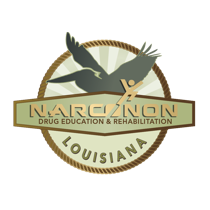The Lost Art of Connection

I came across an intro to a blog on drug and alcohol abuse a few days ago. It highlighted the obsession of today’s youth with video gaming as well as the missing parents of latchkey kids as a reason for extreme individuation of youth. Reading this made me curious. The article also talked about traditional values and that video games are part of the problem with kids today.
I have seen many times that this point of view is pretty unpopular especially with those who are gamers.
Something else, more basic stuck out to me as I read the article and that was the lack of connection. In today’s world, there are so many things to pull us out of our life. Smartphones, television, computers and yes, video games. Right now a few of you reading this might be ignoring a live interaction with someone to read this on your phone.
I bring this up not to scold anyone, but because many of the people I have met who have substance abuse issues do much the same thing; individuate and ignore human interaction. Except they do it with drugs.
They use drugs to avoid their own life and its inherent difficult situations, boredoms, social anxieties, lonelinesses, etc. They use this as an excuse, and if you have ever dealt with an addict, you know they are pretty good at making excuses. An addict finds something, some part of life unconfrontable. Let’s face it, we all do. While some of us have things we use as ways to make it through those “unconfrontables,” either a long walk or a hot bath or binge watching television with bags of chips or bowls of ice cream, an addict uses heroin or cocaine or their drug of choice while an alcoholic uses whiskey, or tequila or a case of beer.

Most of the time what they do will solve the “unconfrontable,” thereby almost guaranteeing the person will use that same solution again. In the milder cases, a walk or hot bath as a solution won’t have other bad effects, while taking drugs or drinking alcohol will. (Just for the record, consumption of chips and alcohol over the long term will also not have good effects on a person’s health but is likely not as life threatening as substance abuse).
Even more interesting is how addicts are handled. Those who are attached to someone who is an addict often ignore the addict as an uncomfortable part of life. That situation then becomes their unconfrontable turning an already bad situation into one that is horrific.
Realize they are avoiding their own life. Embrace those in your life with substance abuse problems, instead of shunning them. Make them know they are cared about and their life can be great without drugs. Above all, insist they get treatment and offer to get them help if they are so willing.
Use their willingness to get them into treatment so they get cleaned up. One of the best things about treatment is restoring relationships with loved ones.
— Sincerely a former addict.
